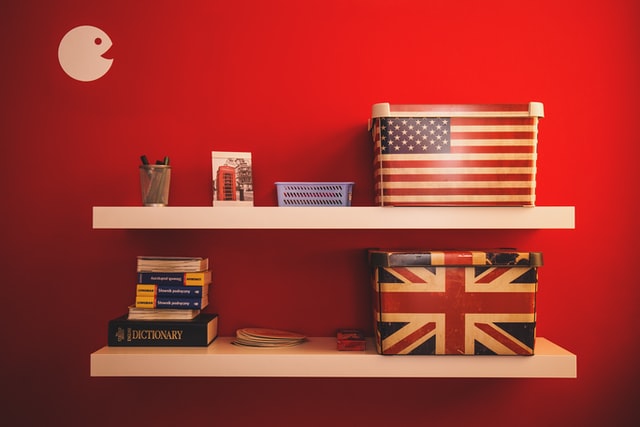The world’s attention has undeniably been largely focused in one place over the last week or so: the US election. And as Donald Trump rumbles on about fraudulent voting, Biden pledges to immediately undo some of the outgoing president’s work, and the question of a US/UK post-Brexit trade deal hangs in the balance, it’s clear we may still be keeping one eye on events across the Atlantic for some time to come. But we’re going to step back from politics for a moment and take a look at something else: American English vs British English.
Really, there’s been a tussle with the US for centuries… not about presidents or trade deals necessarily, but about the English language! As the US began to distance itself from Britain in the 1700s, new American words began to emerge, the subject of which became a source of ridicule among us Brits. And this article makes for an interesting read, especially in terms of learning about how the Webster American English dictionary evolved as a direct result of this new emerging American English.
So bearing in mind all this focus on US, we thought it fitting to have a look at some of those little Americanisms that might raise an eyebrow or two over here in the UK! It’s something we’ve looked at before but thought it high time we revisit!
First up…
Aluminium. Why is it that when said in the US, this word is pronounced Al-u-mi-num… what happened to the extra “i”? Both Americans and Canadians pronounce it in this way. Apparently it was British scientists who decided that the UK way of pronouncing the word had a more classical ring to it… it seems our American counterparts must have disagreed!
Vitamin. Have you been taking yours?! Over the pond the first “i” is pronounced as “I”, which we clearly don’t do here in the UK.
Basil. For some reason, Americans over recent decades have changed how this is pronounced so that the “a” is a long sound like “bay”. This has been a definite move from the way it’s pronounced around the world. The word is derived from the Greek, basilikon, meaning kingly. In Italian, it’s “basilico, with a short A, in French it’s “basilic,” also short A, and in English, for hundreds of years it has been “basil,
The letter “z”. This one always makes me smile – and it’s definitely Americans that are in the minority with this one, as the vast majority of the English speaking world pronounces it the way we do in Britain. It’s believed that the way we pronounce the letter “z” here in Britain is because of its origin – from the Greek letter “Zeta”. Over time this evolved to become the Old French “zede”, which then became “zed” in English in the 1600s.
When it comes to why the United States call “z”, “zee”, the answer is fairly simple: this pronunciation matches up with lots of the other letters “bee”, “cee”, “dee” etc.
So there you have it! A little nod to our friends over the pond in these tumultuous weeks!

